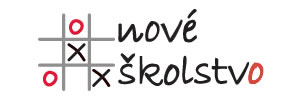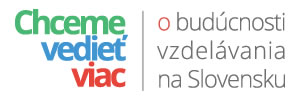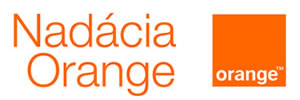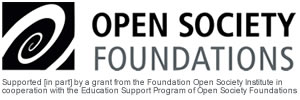Trends
Society is becoming ever more diverse and pluralistic in terms of values. Global economic competition makes political and economic integration more intense. New ethical challenges resonate in the fields of medicine, genetics, technologies, security, ecology, and bioethics. Having achieved prosperity, the space is being opened to promote post-materialistic values emphasizing higher quality of life. At the heart of inter-group conflicts lie clashes between the majority and the anti-systemic minority groups.
Challenges
Will politics operating in an environment of value pluralism be able to prevent the atomization of society? Will civic principles replace the concepts of ethnicity and nation states? Are educational systems going to maintain their integrative function in achieving social consensus and promoting democratic governance?
| Imagine a FUTURE in which the underlying theme will be: | Imagine a FUTURE in which the underlying theme will be: | Imagine a FUTURE in which the underlying theme will be: |
| TAKE CARE OF YOURSELF | TAKE CARE OF THE GROUP YOU BELONG TO | TAKE CARE OF OTHERS |
| What is appreciated in individuals is entrepreneurship and drive. Society is liberal and predominantly urban and secular. | What is valued in individuals is loyalty and solidarity. Society is socially conservative and decentralized. | What is valued in individuals is engagement and solidarity. Society is socially liberal, predominantly urban and secular. |
| Faith is a family affair; it does not affect the public life of its members. Churches and religious societies provide a variety of services and they are financed exclusively by their members. | Society is characterized by a plurality of communities rooted in different values. Churches and religious societies are associations within the communities and are also funded by them. | Faith is an individual matter which does not affect public life. Churches and religious societies are public-benefit establishments and are partly funded from the public sources. |
| Values are cultivated particularly by a family. In addition to parents and grandparents, private tutors, educators or staffing agencies may also participate in education. | Values are cultivated by religious or secular community-based associations. In addition to their leaders, parents, teachers, and elderly members of the community also participate in the education of children. | Values are cultivated by professionals in various educational and social institutions. In addition, parents and personal mentors also participate in the education of children. |
| People trust their abilities and their family; they do not trust attempts to widely regulate social and economic relationships, and enforce rules. | People trust their communities and leaders; they do not trust uprooted individuals or communities that are trying to impose their standards and rules in general. | People trust the government and public institutions; they do not trust commercial entities, and narrow-interest associations. |
| Everyone is the master of their fate. Assistance should be provided only to those who did not cause their own unfavorable situation. It is legitimate and desirable to try to succeed in competition with others. | Each person may contribute. Assistance should be provided to everyone who deserves it. It is legitimate and desirable to live in accordance with one’s own values and the values of the community. | Everyone can contribute to the common good. Assistance should be provided to all those who need it. It is legitimate and desirable to put common interests above individual gain. |
| Socially oriented schools of thought and initiatives are a minority. Egalitarianism and paternalism are anti-system phenomena. | Cosmopolitan and liberal schools of thought and initiatives are the minority. Centralism and individualism are anti-system phenomena. | Economically liberal and socially conservative schools of thought and initiatives are the minority. Individualism and the belief in a free market are anti-system phenomena. |
OUR RESEARCH
People identify most with someone for whom justice and protection of the weaker are important. Up to 92% said they resembled such a person. Other values people identify with most commonly are the willingness to help others, loyalty to friends and people close to them, but also their own independence. At the same time, people express their need to live in a country that is safe from external threats, and where social order is protected (87%). People compare themselves least to a person for whom religious faith is important, but even this idea is embraced by more than half of the people.
Schools should not only educate, but also develop moral values and responsibility. According to 44% of people, children in schools should also learn things that will be useful for society as a whole.
OTHER RESEARCH
The society in Slovakia is ethnically and socially diverse. It can be estimated that close to one-fifth of the population consists of various minorities. In Slovakia, there are almost 80,000 foreigners and their number is increasing from year to year. Yet, the idea is still prevalent among 68% people that Slovakia is a country of Slovaks and it should remain as such. Almost half of people only feel comfortable among Slovaks. 1
During 20 years of exploring the values of people in Slovakia, surveys have shown that family is the absolute most important value. Work is the second most important, followed by friends and acquaintances. The importance of such relationships is gradually increasing. While in early 1990s, people more frequently reported that friends and acquaintances are "rather important", later people started to consider their friends to be "very important".2
In Slovakia, it is also important to have good contacts and know the right people to help one achieve success. People even consider this to be more important than a good education. 3„A person who contributes to their community is valuable. But there is no one unable to contribute, only people who are not willing to contribute.“ participant in the city of, Banská Bystrica
Young people in Slovakia stick to values that tend to maintain the status quo—respect, commitment, and acceptance of customs. The openness to change is significantly lower among the young in Slovakia than among their peers in the Czech Republic, who more often prefer hedonism, sensual delights, and new stimuli.4
For a long time, the inhabitants of Slovakia have preferred freedom over the value of equality. At the same time, there is a growing number of people who think that individuals should take more responsibility for their own lives and take care of themselves. While in 1991, this was an opinion of 33% of people, it was already held by half of the population in 2008.5
The rise of individualism is also expressed through the break-up of neighborhood relations. The role of neighborhood solidarity, cooperation, and mutual assistance weakens. Emerging mother centers may be considered as an example of a replacement. They provide support to parents and create a space for spending time together. Gradually, various neighborhood communities are also being created, which are dedicated to joint activities such as communal gardening.6
„Everyone is first and foremost responsible for themselves. The concept of solidarity is not very good for me because I only spend what I can afford.“ workshop participant in the city of , Banská Bystrica
People in Slovakia recognize the benefits of competition, although in early 1990s they appreciated it more (73%) than in 2008 (67%). Yet, almost half of the people believe that businesses should be regulated. More freedom for companies over the long run is requested by only a quarter of the population. Views on income equality and the greater role of merit are distributed in the population fairly evenly, with slight preference for equality (41% vs. 33%).7
GOOD TO KNOW
A century ago, many things that are unacceptable today were considered normal. On the contrary, what was once unimaginable does not disturb us today. Therefore, scientists are trying to anticipate moral beliefs of the future and to identify further possible shifts. For example, some scientists assume that in 100 years, the right to a happy life will be afforded not only to citizens of the given society, but also to next generations, and major decisions will take them into account. Worthy of protection will not only be people, but all creatures capable of feeling pain. At the same time, differences will be lost between people in terms of their legal protection and various states will protect people in the same way. The current legal system, based largely on the right of revenge, will no longer be justified. People will no longer be punished; they will be given support to eliminate the harmful behavior responsible for their problems. 8
„There is no doubt that the economy, technical innovation, and geopolitical changes are global. Yet, this does not mean that we are unstoppable in our march into a united world. Globalization has its limits. The world becomes more integrated and at the same time more differentiated. It faces civilization and cultural differences, different values, different history of collective identity and its territorial aspects, different ideas about the dignity of an individual and their personal responsibility, the nature of social cohesion, but also where solidarity ends and blackmail begins. The world faces the limits of what is a gift and what is already corruption or a theft; it faces different ideas about what a person may give and obtain and whether it is sustainable over the long term for few to become richer and many to become poorer.“ Peter Zajac, literary scholar
„If “technology” is the answer, what was the question? We seem to obsess over new technologies while having little understanding of what they’re for or how they can impact learning. Technologies are great for doing what we have been doing better, but using new technologies to do the same old stuff in the classroom is a lost opportunity. Black boards have been replaced by whiteboards and SMART Boards. Books have been replaced by iPads. This is like building a nuclear plant to power a horse cart. Yet, nothing has changed, and we still focus tremendous resources on these tools, and squander our opportunities to exploit their potential to transform what we learn and how we do it. By recreating practices of the past with technologies, schools focus more on managing hardware and software rather than developing students’ mindware and the purposive use of these tools.“ Manifesto 15
„Young people may appear on the scene in the future who will completely change it here. They will be local patriots with their own strong identity – I'm doing what I want, what I enjoy, I eat, I drink, I will do something for myself, for my loved ones and also for my surroundings, but do not deal with anything else. They will not have a consumerist but rather a pragmatic way of life. “ a workshop participant in the town of, Rožňava
Footnotes
[1] Gallová Kriglerová, E., Kadlečíková, J. (2012) Verejná mienka v oblasti pravicového extrémizmu. Bratislava: Nadácia otvorenej spoločnosti.
[2] Kusá, Z., Tížik, M. (eds.) (2009) Výskum európskych hodnôt 1991-1998-2008 slovenská a česká spoločnosť. Bratislava: Sociologický ústav SAV.
[3] Bunčák, J. et al. (2009) Názory občanov na budúcnosť Slovenska. Bratislava: Ekonomický ústav Slovenskej akadémie vied.
[4] Ilgová, J., Ritomský, A. (2009) Hodnoty mladých Čechov a Slovákov: Komparatívny empirický výskum. In Sociálne a politické analýzy, 3,1/2009, s. 73-113.
[5] Kusá, Z., Tížik, M. (2009).
[6] Nadácia pre deti Slovenska (2010) Novo vynárajúce sa potreby detí na Slovensku.Bratislava.
[7] Kusá, Z., Tížik, M. (2009).
[8] Klein, S., Cave, S. (2015) Once and Future Sins. In AEON. 24.03.2015. Dostupné na https://aeon.co/
[9] Manifesto 15 (2015). Dostupné na http://www.manifesto15.org/sk/



